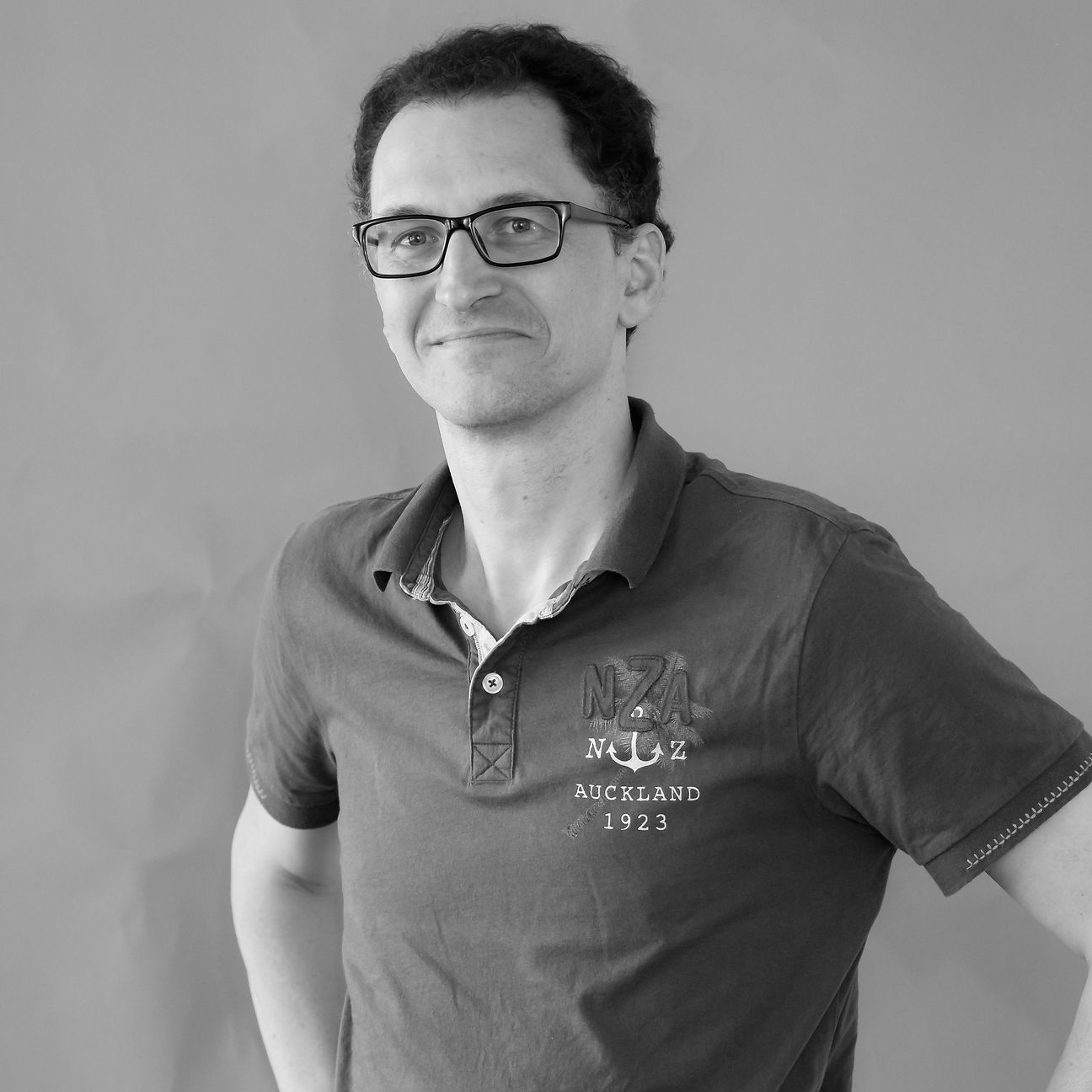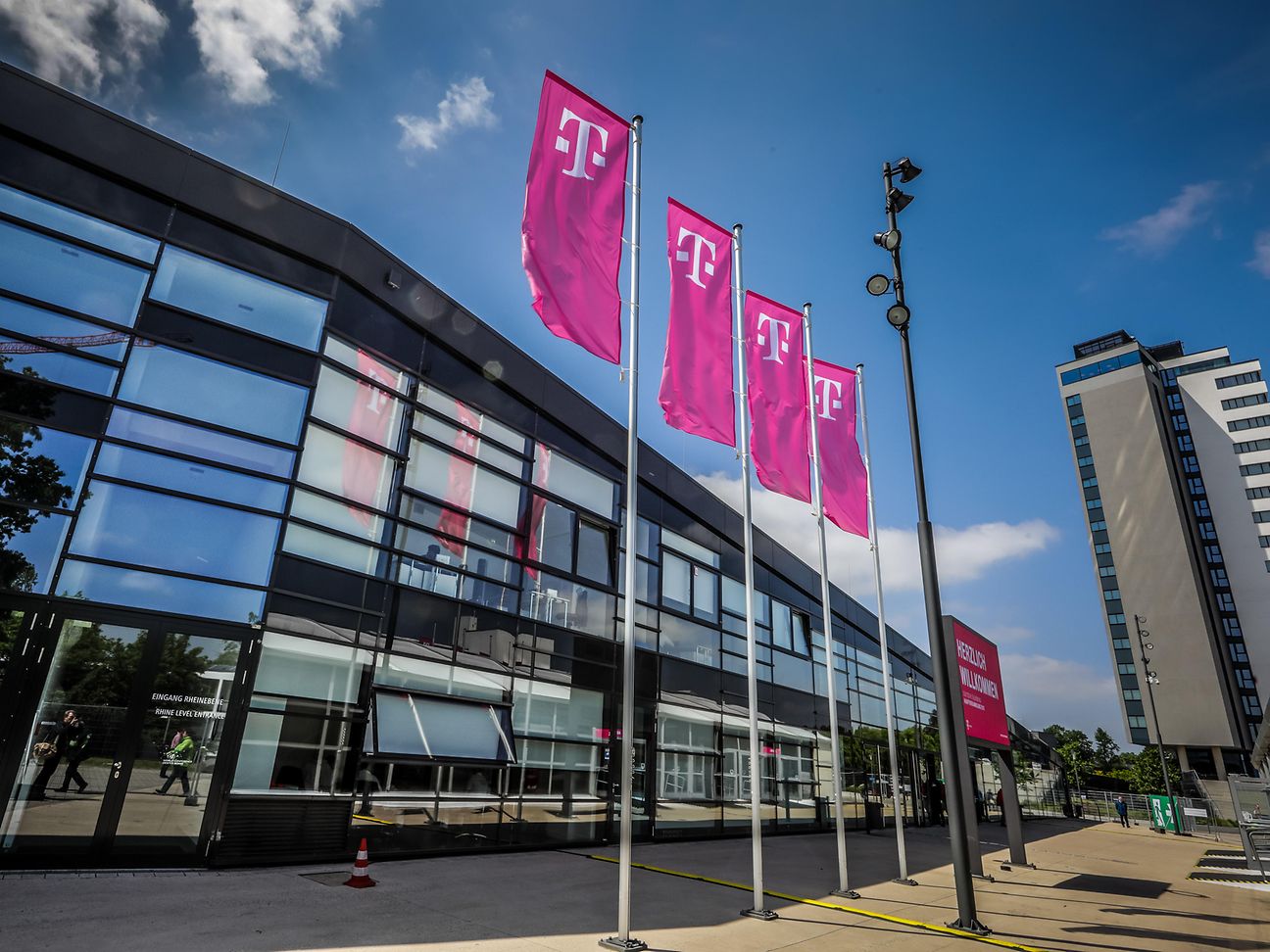

- Tim Höttges makes it clear: “Artificial intelligence is here to stay.”
- CEO on growth prospects: “Our task going forward is to leverage economies of scale. Scale lightens the load.”
- Dividend to increase from 70 eurocents to 77 eurocents per share.
“We are gathering momentum for the future!” After a very successful 2023 financial year, CEO Tim Höttges believes Deutsche Telekom is well positioned for further growth. Key factors include innovations such as artificial intelligence (AI). At the shareholders' meeting of Europe's leading telecommunications company at the World Conference Centre in Bonn, Höttges was confident: “We can do this, despite headwinds. And despite tough regulation.” And he added: „The future is not far beyond the horizon. It is right in front of us. We are shaping this future. With every step.”
Talking about the rapidly growing importance of AI, Höttges said: “AI is here to stay. AI is the future. We now use AI in some 400 projects, Deutsche Telekom-wide. It helps us optimize quality. It brings us closer to our customers. It enhances our productivity. By up to 50 percent for routine tasks.”
On the stage of the shareholders’ meeting, Höttges gave a live demonstration, with examples such as chatbots and the T-Car. The Frag Magenta digital assistant uses a chatbot to handle customer requests. Voice-controlled, it is able to reliably answer questions around the clock. Frag Magenta has already resolved millions of issues on its own in the last year. Deutsche Telekom is already using AI in its fiber-optic build-out. T-Cars deliver a digital image of the roads and analyze the collected data using AI. The system recognizes different surfaces such as asphalt or cobblestones, checks whether trees or street lights are in the way, and makes suggestions for the optimum fiber-optic route. In the last few years, 140,000 kilometers of road network have been recorded, with more than 145 million photos taken, providing more than 750 terabytes of data. Thanks to the T-Cars and new planning systems, 75 percent of labour time for structural planning has been saved.
The CEO referred to the high investments made by the Group. “In the last ten years, we have invested more than 173 billion euros. The result: Today, we are top of the class in almost every network test. In mobile communications in Germany, number one in every single test for the last ten years.” And according to Höttges, this is to continue, in particular with the current build-out of pure fiber-optic lines (FTTH). “We are building more in Germany than anyone else. Two out of every three new lines. 2.6 million homes passed last year. We are sustaining this pace. Even as it becomes harder to do so. Because we, too, are affected by inflation.” Tim Höttges argued once again for faster approval processes and alternative laying techniques. He stressed the importance of the successful business in the United States for Deutsche Telekom. “T-Mobile US is paying out dividends for the first time, around half of which come to us. If it were not for the success of our U.S. business, our high investments in Germany and Europe would be impossible.”
Höttges outlined the growth course for the Company going forward. “Digitalization is our future. That is how we will make our customers happier. We can earn more. And reduce our costs. This is where we will grow in future.” According to the CEO, the scale of Deutsche Telekom is to deliver a decisive advantage here: “A large part of our costs is incurred from the development of products such as routers, from applications for business customers, or from software that we develop, for instance for network management. The more customers we have, the less consequential these costs become. Today, Deutsche Telekom has 300 million customers worldwide. Our task going forward will be to leverage this advantage. Scale lightens the load!”
Shareholders are to participate in last year’s positive business development by way of a higher dividend. The Board of Management and Supervisory Board are proposing a dividend of 77 eurocents per share, up from 70 eurocents per share a year earlier.
This media information contains forward-looking statements that reflect the current views of Deutsche Telekom management with respect to future events. They are generally identified by the words “expect,” “anticipate,” “believe,” “intend,” “estimate,” “aim,” “goal,” “plan,” “will,” “seek,” “outlook,” or similar expressions and include generally any information that relates to expectations or targets for revenue, adjusted EBITDA AL, or other performance measures. Forward-looking statements are based on current plans, estimates, and projections, and should therefore be considered with caution. Such statements are subject to risks and uncertainties, most of which are difficult to predict and are generally beyond Deutsche Telekom’s control. They include, for instance, the progress of Deutsche Telekom’s staff-related restructuring measures and the impact of other significant strategic or business initiatives, including acquisitions, dispositions, and business combinations. In addition, movements in exchange rates and interest rates, regulatory rulings, stronger than expected competition, technological change, litigation and regulatory developments, among other factors, may have a material adverse effect on costs and revenue development. If these or other risks and uncertainties materialize, or if the assumptions underlying any of these statements prove incorrect, Deutsche Telekom’s actual results may be materially different from those expressed or implied by such statements. Deutsche Telekom can offer no assurance that its expectations or targets will be achieved. Without prejudice to existing obligations under capital market law, Deutsche Telekom does not assume any obligation to update forward-looking statements to account for new information or future events or anything else. In addition to figures prepared in accordance with IFRS, Deutsche Telekom presents alternative performance measures, e.g., EBITDA, EBITDA AL, adjusted EBITDA, adjusted EBITDA AL, adjusted EBITDA margin AL, core EBITDA, adjusted EBIT, EBIT margin, adjusted net profit/loss, adjusted earnings per share, free cash flow, free cash flow AL, gross debt, and net debt. These measures should be considered in addition to, but not as a substitute for, the information prepared in accordance with IFRS. Alternative performance measures are not subject to IFRS or any other generally accepted accounting principles. Other companies may define these terms in different ways.
About Deutsche Telekom: Deutsche Telekom Group profile

